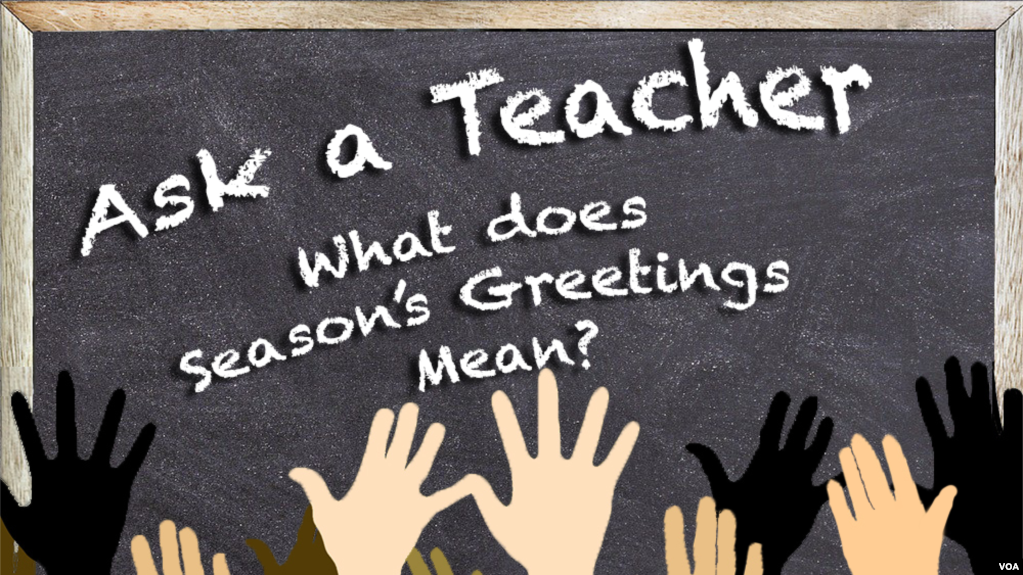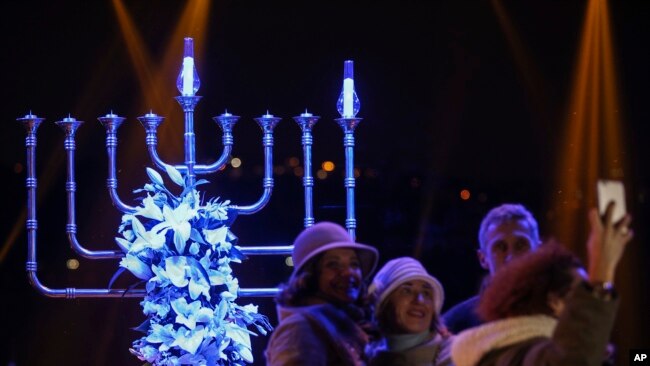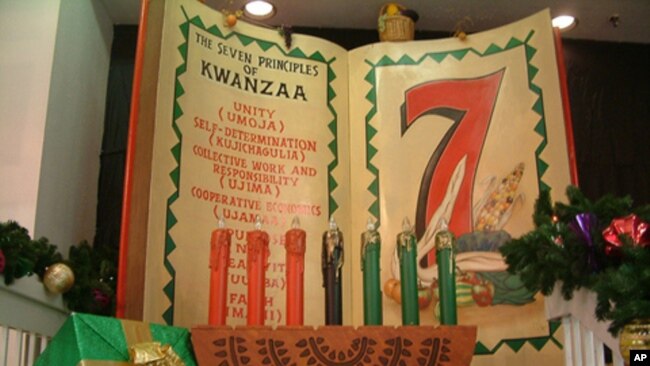
Hello! This week we answer a question about a common greeting we hear in December: Season’s Greetings.
Question:
Dear VOA,
I hear Americans saying, “Season’s Greetings.” What does it mean? And how do you write it: “Season’s [Season-apostrophe-s] Greetings” or “Seasons’ [seasons-apostrophe] Greetings?”
Hussein, India.
Answer:
Dear Hussein,
This expression is very common in the period between Thanksgiving, at the end of November, and New Year’s Day, January 1. There are many holidays being celebrated during this time, or season.
Thanksgiving is held on the fourth Thursday in November. Then there is Hannukah, which is part of the Jewish religion. This year, Hannukah began shortly after Thanksgiving, on November 28.

Christmas is on December 25. Kwanzaa, a yearly celebration of African American culture, is held from December 26 to January 1. Lastly, there is New Year’s Eve on December 31 and New Year’s Day on January 1.
The plural word “greetings” means a message that expresses good wishes to someone.
When we write cards or letters at this time of year, we try to include as many of our friends’ religious, or nonreligious, traditions as possible. So, people may choose to say, “Season’s Greetings.” You will find the expression on cards, gifts and in outdoor lighting displays.

A similar expression is “Happy Holidays.” That is another way to include people with a variety of traditions in our greetings.
How to write it
Finally, how do you write “Season’s Greetings?” It is one season, so the apostrophe goes after the word “season” and before the “s.”
The VOA Learning English team hopes you are able to gather safely with your family and loved ones during this season, as we send you all “Season’s Greetings.”
What question do you have about American English? Send us an email at learningenglish@voanews.com
And that’s Ask a Teacher.
I’m Jill Robbins.
Dr. Jill Robbins wrote this lesson for VOA Learning English. Ashley Thompson was the editor.
________________________________________________
Words in This Story
plural – grammar. relating to a form of a word that refers to more than one person or thin
display – n. an arrangement of objects intended to decorate, advertise, entertain, or inform people about something
Do you have a question for the teacher? We want to hear from you. Write to us in the Comments Section.